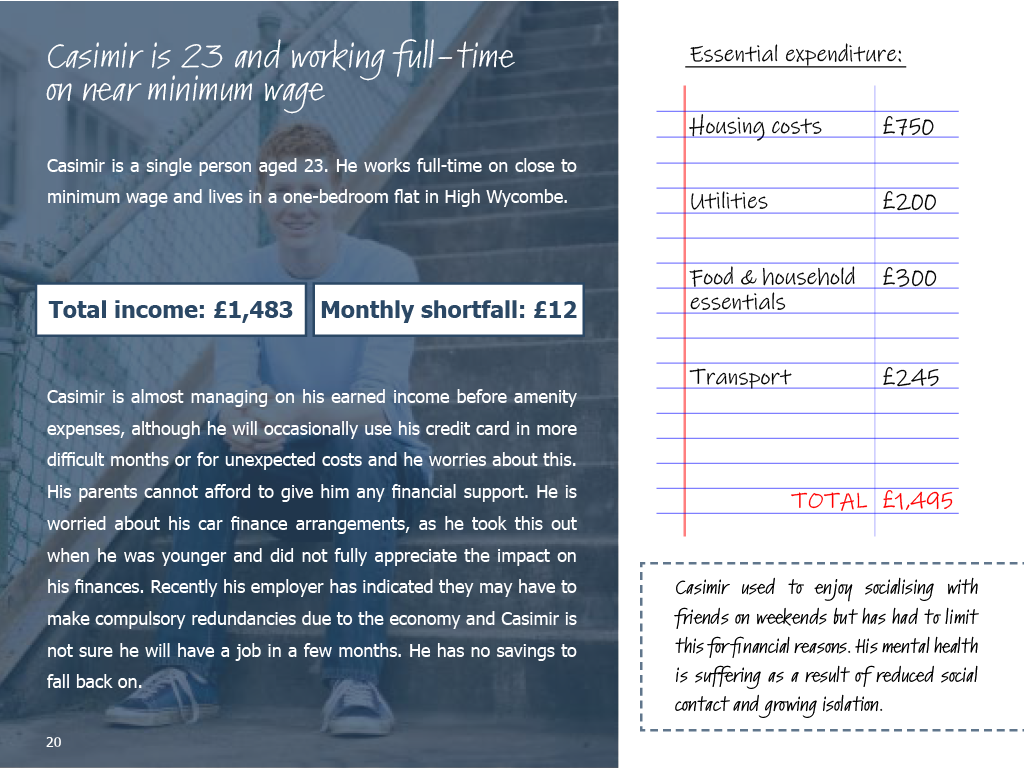
GUEST BLOG
Liz Barter: Ambassador for Isolation, Disadvantage & Poverty
Care workers can’t afford basic essentials
It’s hard to comprehend that hard-working, caring professionals are struggling to afford essentials like food, heat and rent. But talking to colleagues and friends across the care sector, that’s exactly the situation we’re facing.
Data shows that those working with adults with learning disabilities have suffered significant wage stagnation. They earn, on average, around £11 an hour. Even with all the overtime humanly possible (and there is always plenty, thanks to the recruitment crisis in social care[1]), the vast majority are having to eat less and heat their homes less, just to survive. I work for a neighbouring local authority, and I know that councils are doing their best to ensure providers are able to pay the best rates possible. It is just not possible to keep up with the huge jump in the cost of life’s essentials.
Seb Moh, Director at Macintyre, a national charity supporting adults with a learning disability and/or autism, told me how as an charity they are aware of the link between the wellbeing of staff and the care they’re able to provide. They provide financial advice and support to staff, but like any organisation their funds are limited.
On a personal level, I have seen first-hand the impact the crisis is having on care workers. My brother lives in a care home for people with complex learning disabilities, in Aylesbury. It became apparent that many of the care home employees were going without lunch. So the team now club together to supplement an allowance that the company give each manager to provide essential packages of non-perishable items every month. The manager told me that they donate these items to a communal cupboard for staff each week. These are highly trained, skilled, hard-working people, doing a vital (I can attest to that) job. But still, they must accept their colleagues’ donations of tea bags, cup-a-soups and baked beans just to make it through the week.

The image above shows an example income of a young person working at near minimum wage. This profile was just one character represented in our Bucks Uncovered Cost of Living Crisis Report to highlight the challenges being faced by households in Buckinghamshire. They have been created for illustrative purposes and do not intentionally represent real individuals. While these stories are fictional, they are based on common experiences and circumstances that many local households encounter in real life.
Rising rents and homelessness
The number of people sleeping rough has risen sharply since 2016[2], and that includes Buckinghamshire.
Mickey Clark, from Riverside, works to engage the homeless people they support in co-production initiatives, and has a very clear view of how the COL crisis affects her clients. She told me about a woman living in a hostel in High Wycombe who said that her hopes of ever getting out of the hostel were fading. Councils understandably, must prioritise families, but with so many more people losing their homes, single people trying to work their way out of homelessness don’t stand a chance.
The rising costs of private rent and the growing gap between Local Housing Allowance (formerly housing benefit) and private rents is, it appears, also putting more and more hard-working people at risk of homelessness. James Boultbee from Wycombe Homeless Connection has written to all five MPs in Buckinghamshire to highlight this issue. I am pleased to say that he is optimistic about the MP’s response and interest in understanding the depth of the problem.
But still, it’s hard not to feel a stab of hopelessness when seeing the scale and depth of the impact on the people working in the care sector along with so many others. We clapped for key workers during the pandemic. I now wonder if framing them as “angels” and “heroes” was helpful in the long run – they are working people with energy bills, childcare costs, debt, and often utterly bonkers private rents to pay. If things don’t change soon they may need of our help in a more tangible way. Without enough caring professionals to support people like my brother, we would find ourselves in a shameful place indeed.
Learn more about the impact this financial crisis is having in our Buckinghamshire Uncovered: Cost of Living Report.
[1] Social care staffing situation continues to deteriorate, show latest figures – Community Care
[2] Homelessness Monitor 2022 | Great Britain | Crisis UK


